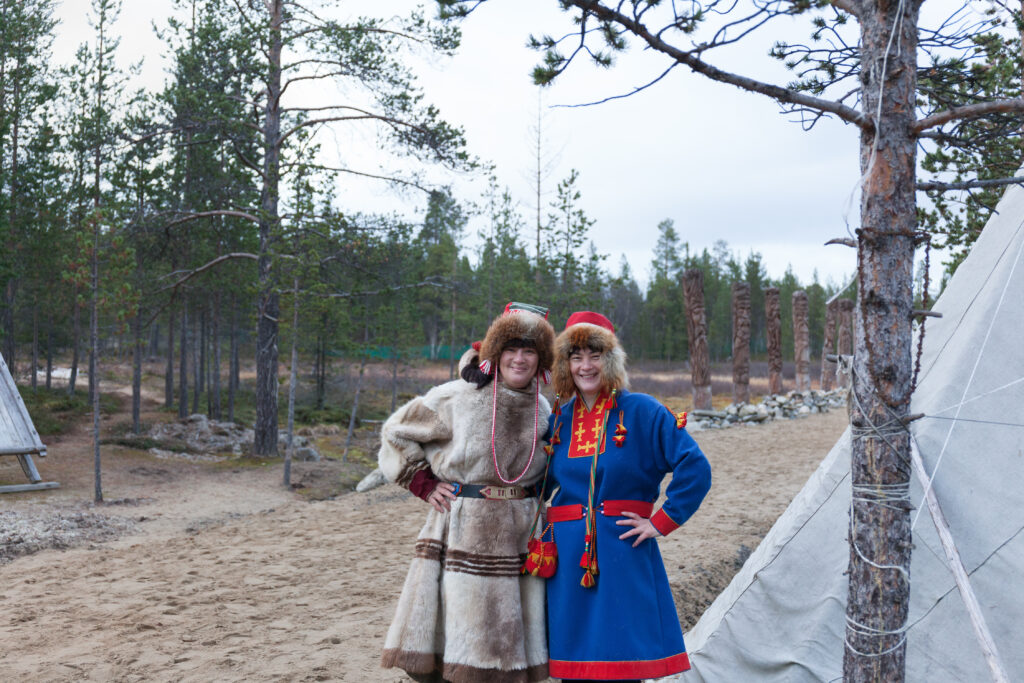This dictionary was donated to the National Museum of Language anonymously. South Saami is an endangered language spoken in Norway and Sweden. You can read more about the language and hear samples at the Endangered Languages Project.
You can browse through the dictionary by clicking on the left or right arrows below. Or you can download the pdf file.
About the Saami People and Languages

The Saami (also spelled Sámi) were sometimes called Lapp, but that name is now considered derogatory. They live in a region which they call Sápmi that stretches across the northern areas of Norway, Sweden, Finland and the Kola Peninsula of Russia. They were formerly nomadic, herding reindeer. Now they make their living by farming, forestry, fishing, mining, and other commercial or academic pursuits. There are estimated to be from 50,000 to 200,000 Saami people.
The three Saami languages have been banned at times by Scandinavian governments, but more recent times have seen efforts to preserve the languages and Saami culture.
In Norway, Sweden and Finland, there are parliaments to represent the Saami people They also have newspapers and radio stations reporting in Saami languages.
FUN FACT: In Frozen II, there is a tribe called the Northuldra tribe in the Enchanted Forest. They are based on the Saami people of northern Norway. The film’s characters, Elsa and Anna, learn that their mother was a member of that tribe, so the sisters have Northuldran ancestry.
Sources
Sami | People, History, & Lifestyle | Britannica. https://www.britannica.com/topic/Sami. Accessed 12 Dec. 2022.
Sápmi – IWGIA – International Work Group for Indigenous Affairs. https://www.iwgia.org/en/sapmi.html. Accessed 12 Dec. 2022.
Chandler, Gemma. “Fascinating Facts about the Sámi People.” National Geographic Kids, 17 Dec. 2019, https://www.natgeokids.com/uk/discover/geography/general-geography/sami-people-facts/.
